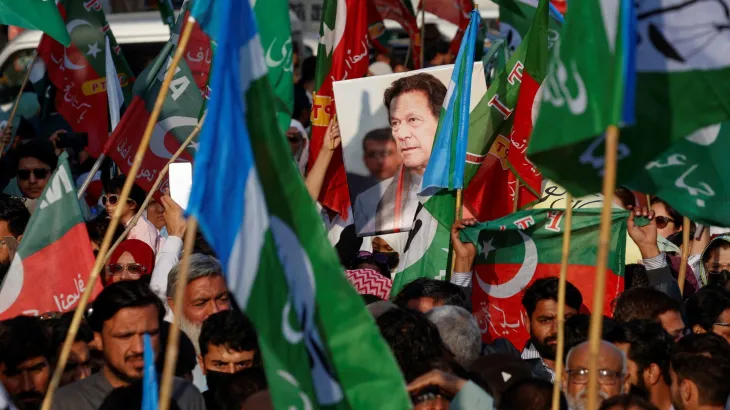
Pakistan Election Results: Impact On Afghanistan And Region
Khaama Press debuted its new X Space on Sunday evening, focusing on the“Pakistan Election Results: Impact on Afghanistan and the Region.” The event featured insights from Afghan political analysts and commentators, providing a platform for discussions on the significant implications of the Pakistan elections for both Afghanistan and the broader region.
Wais Nasiry, an Afghan political analyst, commended Pakistan's successful conduct of general elections despite numerous challenges. He noted the participation of over 34 political parties, with Tehreek-e-Insaf securing 101 parliamentary seats, followed by Muslim League-Nawaz with 74 seats and the People's Party of Bilawal Bhutto with 54 seats.
Nasiry highlighted that none of the parties attained a majority, leading to speculation about a potential coalition government between the Muslim League and the People's Party or between the Tehreek-e-Insaf and People's Party led by Bilawal Bhutto.
The election outcome indicated that despite army support for the Muslim League led by Nawaz Sharif, independent candidates aligned with Imran Khan's faction garnered the most parliamentary seats, as observed by Mr. Nasiry.
Contrarily, Aziz Maharaj, another political analyst, asserted that Pakistani politicians wield minimal influence in decision-making processes, with the military predominantly controlling affairs.
Meanwhile, Nasiry also emphasized that Pakistan's strategic policy towards Afghanistan is unlikely to undergo significant changes unless the Pakistani military remains in power.
This insight highlights the intricate dynamics between civilian governance and military authority in shaping Pakistan's foreign policy agenda, particularly regarding Afghanistan. Nasiry's observation suggests that the military's dominance in decision-making processes casts a long shadow over efforts to reformulate Pakistan's approach to its neighbouring country, emphasizing the need for nuanced diplomatic strategies to navigate regional complexities effectively.
Both analysts concurred that Pakistani politicians prioritize national interests, contrasting with Afghan politicians who often neglect Afghanistan's national interests in favor of foreign agendas.
Nasiry and Maharaj emphasized the importance of Afghan politicians reassessing their priorities to better serve the nation's interests, echoing sentiments of dissatisfaction with the current political landscape.
ShareFacebook Twitter WhatsApp Email Print Telegram
Legal Disclaimer:
MENAFN provides the
information “as is” without warranty of any kind. We do not accept
any responsibility or liability for the accuracy, content, images,
videos, licenses, completeness, legality, or reliability of the information
contained in this article. If you have any complaints or copyright
issues related to this article, kindly contact the provider above.

















Comments
No comment